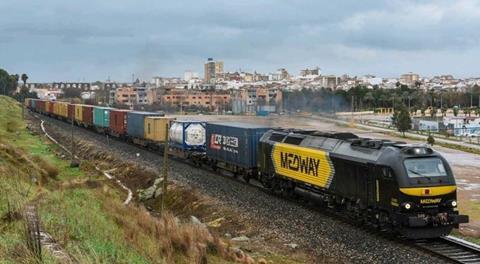
PORTUGAL: A consortium of 10 organisations led by private operator Medway is to invest €82m to develop a local freight wagon manufacturing capacity in the Médio Tejo region.
According to Medway, the initiative will lead to creation of at least 65 jobs in the area, and mitigate the impact of closing the Pego coal-fired power station at Abrantes, which had been a major traffic generator for Medway.
Under the plans announced in December, the consortium intends to develop the production of so-called ‘smart wagons’ with a manufacturing carbon footprint of no more than half that of conventional designs. The wagons will incorporate a high proportion of recycled material and the assembly plant is to be entirely powered from renewable energy sources. A final location for the factory has still to be confirmed.
As well as three business units from the Medway group, the consortium includes private-sector players Nomad Tech and Evoleo Technologies, four non-profit entities including departments from the Technical University of Lisboa and the Faculty of Engineering at the University of Porto, the national Institute of Science & Innovation and the national railway industry association PIP.
According to Medway Managing Director Bruno Silva, the investment ‘will also allow for the recovery of Portugal’s rail industry and reverse the country’s trade balance, replacing imports with exports’. PIP Executive Director Paulo Duarte commented that the proposals were ‘an undeniable opportunity to demonstrate our industrial production capacity, combined with innovative technologies and high added value’.
- Medway has opened another Spanish office and training centre in Madrid. Representing an investment of €645 000, the building provides staff welfare facilities for 25 traincrew and space for educating up to 50 students as part of the Medway Training academy. ‘This is another step in Medway’s Iberian expansion’, explained Group CEO Carlos Vasconcelos. ‘In the last two years, our operation in Spain has grown by 150%, thanks to a continued focus on new services.’

















